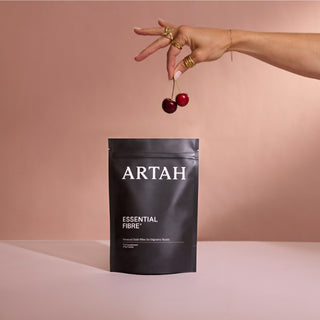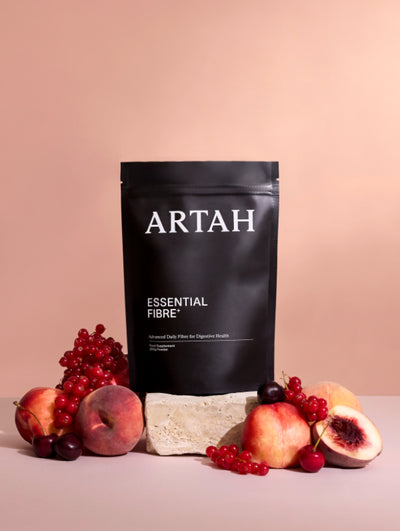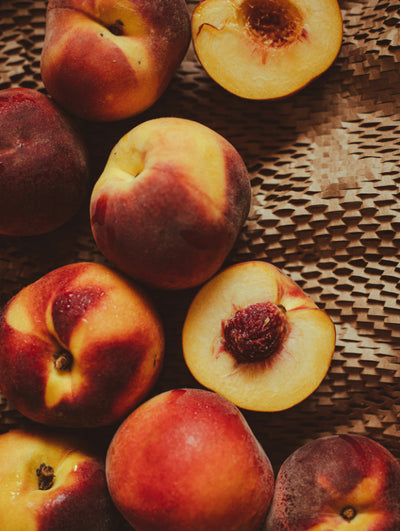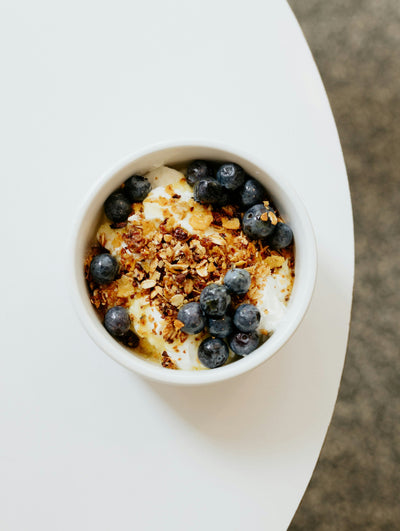Everyone is talking about protein and the importance of meeting our daily requirements. Protein is crucial for muscle synthesis, balancing blood sugar, repairing tissue, maintaining pH and fluid balance (to name a few). The RDA is 0.8g per kg of body weight, but a better target for optimal health is more along the lines of 1g of protein per kg of bodyweight. So, for example, if your weight is 60kg, you would aim for 60g of protein each day. Whilst we know it is incredibly important, sometimes it can feel difficult to get this much. Protein isn’t just in meat and fish and often, you’d be surprised where you can find it, which is why we’ve pulled together 8 of our top sneaky sources of protein to help you meet your goals.
Tahini: 1 tbsp = 2.6g
Tahini is a delicious sesame seed paste (and firm ARTAH favourite) that is packed with phytonutrients and gram for gram, contains more protein than milk. It is a rich source of B vitamins that aids energy production, supports brain function and is essential for our stress response. It is high in vitamin E and important minerals, such as magnesium, iron and calcium. It’s been researched for its antioxidant, antihypertensive, hypolipidemic, and appetite-controlling properties.
Edamame Beans: 1 cup = 17g
You won’t just be ticking protein off of the list, edamame beans are also rich in fibre, packing in 8 grams per cup. They contain isoflavones, which are found in other soy products and legumes. They have cholesterol-lowering, blood sugar-balancing and antioxidant properties, and also contain vitamin k, folate, magnesium, phosphorus, folate, copper and potassium. Great for salad bases, sushi bowls and a snack to pack in extra protein throughout the day.
Broccoli: 1 cup = 2.6g
The wonderful cruciferous vegetable that is broccoli contains 2.6g of protein per cup – far more than most people expect. It contains a special class of phytonutrients called glucosinolates, the compounds that give broccoli its dark green colour and bitter flavour. Glucosinolates have strong anti-inflammatory and antioxidant properties, which help to protect our cells from oxidative damage. Additionally, it's a great source of vitamin C, K and A and minerals potassium, calcium and iron.
Artichoke: 1 cup = 3g
Artichoke is known as a cholagogue, which means it promotes the stimulation of bile production in the liver and promotes emptying of bile from the gall bladder. This helps to support healthy digestion, especially the digestion of fat. It packs in 9g of fibre per large artichoke and helps to protect the liver due to a flavonoid called silymarin (which is also found in Milk Thistle). Overall, a nutritional powerhouse.
Pumpkin Seeds: 2 tbsp = 2g
These little powerhouses are rich in protein and are an easy supplement to any meal to up the protein content. They are also a source of omega 3 fats, which support inflammation, brain health and help regulate cholesterol. They are also rich in minerals, containing high amounts of copper, magnesium zinc, iron and manganese.
Yellow Split Peas: 1 cup = 16g
Yellow peas are a pulse and part of the legume family. They are packed with protein and soluble fibre, making them a must have for metabolic health. Soluble fibre draws water straight into your gut to support healthy, regular bowel movements, and helps satiation, cholesterol regulation, and blood glucose levels.
Brussel Sprouts: 1cup = 6g
Brussel sprouts, you either hate it or love it! We love it – obviously – because there is so much to love. They are a member of the cruciferous family and contain Indole-3-carbinol which supports liver detoxification, which makes them particularly effective at balancing hormones. In addition, they’re rich in fibre ,with 1 cup equaling to 3.3g, and boast high amounts of vitamin C, K and minerals magnesium, iron and potassium.
Wild Rice: 1 cup = 6.8g
Wild rice is a seed that is naturally gluten-free with a whopping 10g of fibre per cup alongside its impressive protein count. It is high in magnesium which helps to support energy production in the body and performance. It’s a rich source of B6 which is essential for metabolism and brain function.



















































